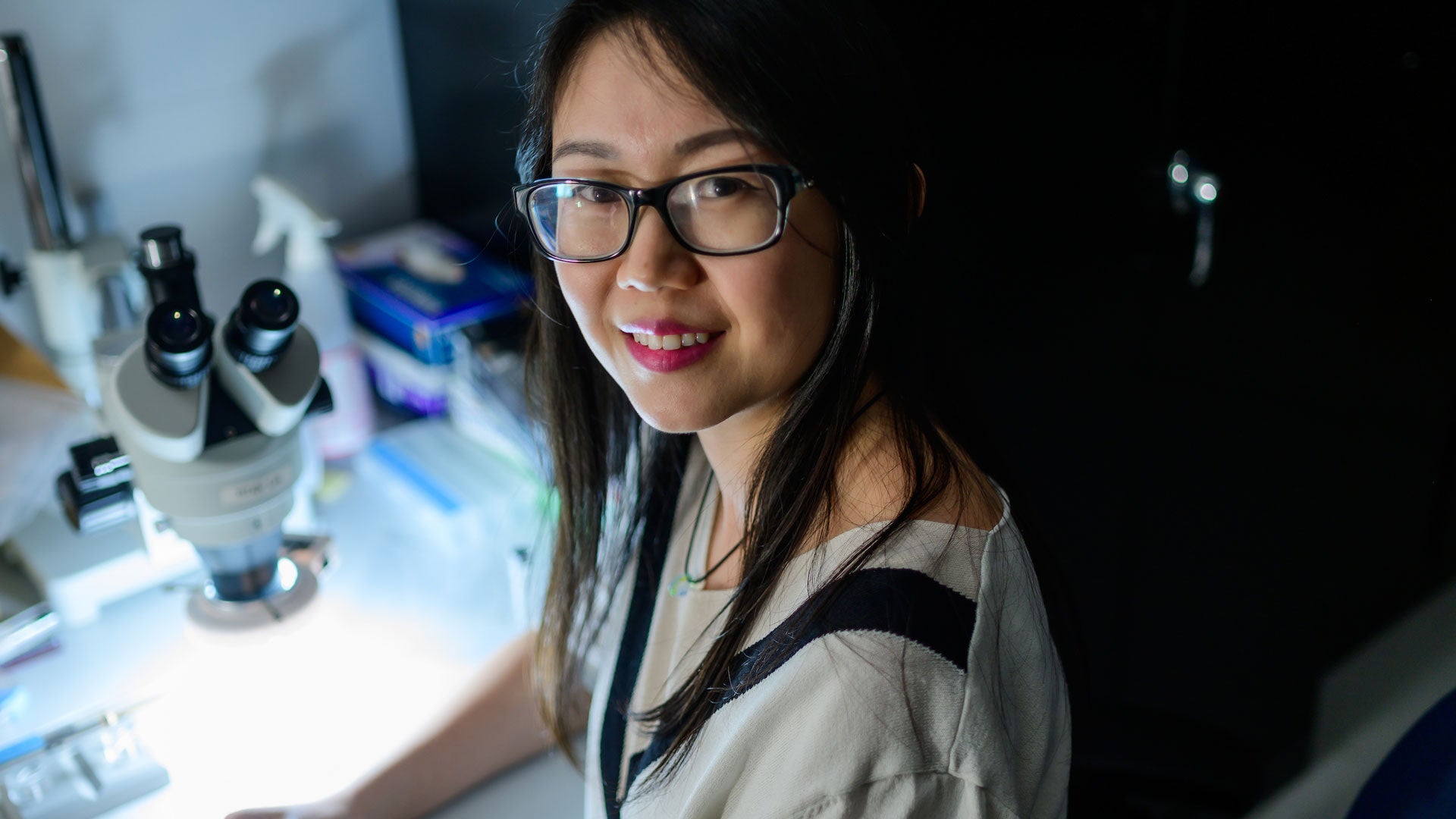Because two-dimensional (2D) materials are as thin as a single atom, they will help change how we manufacture electronics, store energy and build sensors, all on the ultra-thin scale.
With the support of her National Science Foundation (NSF) CAREER Award, Yimo Han, assistant professor of materials science and nanoengineering at Rice University, will use recent electron microscopy approaches to observe the deformation mechanisms of 2D materials and help understand their differences from conventional behavior observed in bulk materials. Han is the recipient of a five-year, $650,707 grant from the NSF.
CAREER Awards are given annually to some 400 young scientists and engineers in support of “early career faculty who have the potential to serve as academic role models in research and education and to lead advances in the mission of their department or organization.”
“Two-dimensional films under strain become deformed,” said Han. “Deformation and defects play a critical role in the mechanical, electrical and chemical properties of these materials because of their atomic thinness. We want to leverage this knowledge when we are engineering new applications for 2D materials.
Han uses the microscopes housed in the Electron Microscopy Center in Brockman Hall. She hopes to advance the use of complex 2D materials in such applications as flexible electronics, quantum computing, catalysis and protective coatings.
Using four-dimensional scanning transmission electron microscopy and related techniques, she hopes to map the lattice strain and deformations in 2D structures.
“By investigating various sizes and shapes of 2D structures,” Han said, “we expect to gain a more comprehensive understanding of novel deformation mechanisms in complex 2D materials. This will enable precise engineering of strain and defects in these materials and structures, which will have significant implications for development of more advanced devices.”
Han’s grant will also encourage broader participation in STEM, focusing on underrepresented minorities and women. Efforts will include a Research Experience for Teachers program for local high school teachers, interactive science demonstrations for young learners in collaboration with a local museum, and integration of research and education through curriculum development.
Han earned her Ph.D. in applied physics from Cornell in 2018 and joined the Rice faculty in 2020.

